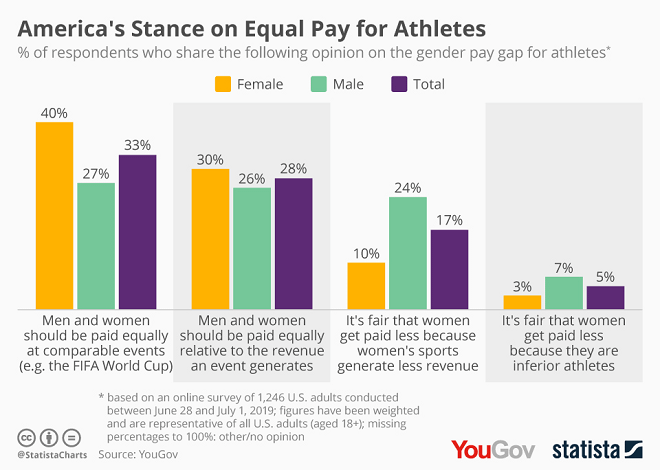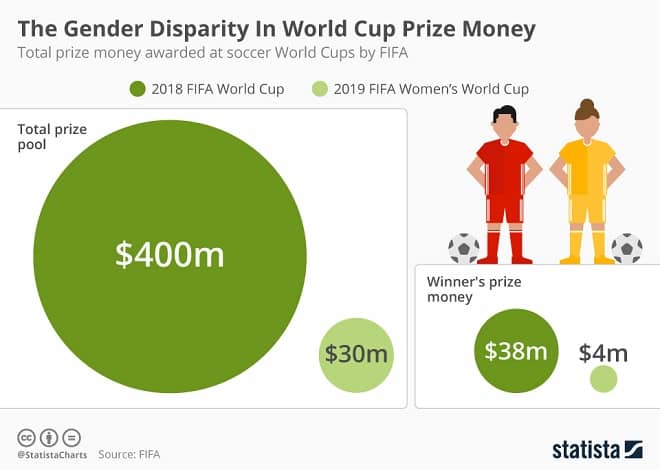Source: Statista
The U.S. women’s soccer national team successfully defended its title at the FIFA Women’s World Cup in France, but the team that clinched its fourth World Cup title on Sunday is still in the middle of another battle: that for equal pay.
In March, 28 members of the 2015 World Cup squad sued the U.S. Soccer Federation (USSF) over gender discrimination, arguing that they are unfairly treated both in terms of pay and employment conditions compared to the (significantly less successful) men’s soccer team. According to the suit, if both teams were to play 20 friendly matches over the course of a year and win them all, the women would receive $99,000, while the men would cash in $263,320. Those numbers are even more astonishing when considering that the women’s team generated more revenue for the USSF compared to the men’s team over the past three years, according to figures obtained by the Wall Street Journal.
While fans of women’s soccer are (unsurprisingly) in favor of equal pay for female players, they even chanted “equal pay!” following the U.S. victory on Sunday, where does the general public stand on the issue? According to a survey carried out by YouGov in cooperation with Statista, the majority of U.S. adults think that female athletes should be paid equally, with 30 percent of all respondents demanding equal pay for women at comparable events (e.g. the FIFA World Cup or Wimbledon), while another 28 percent think female athletes should be paid equally relative to the amount of revenue an event creates.


